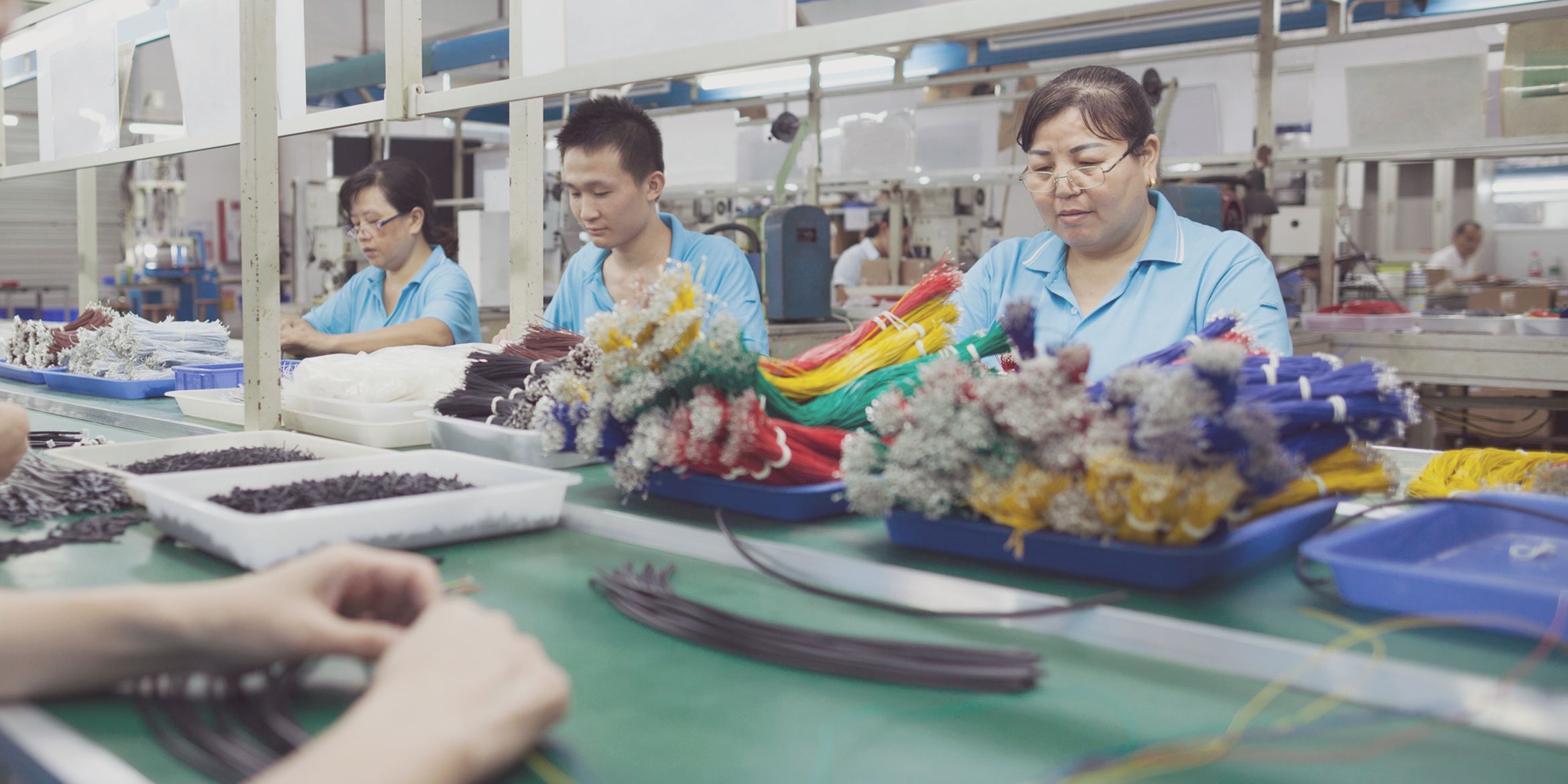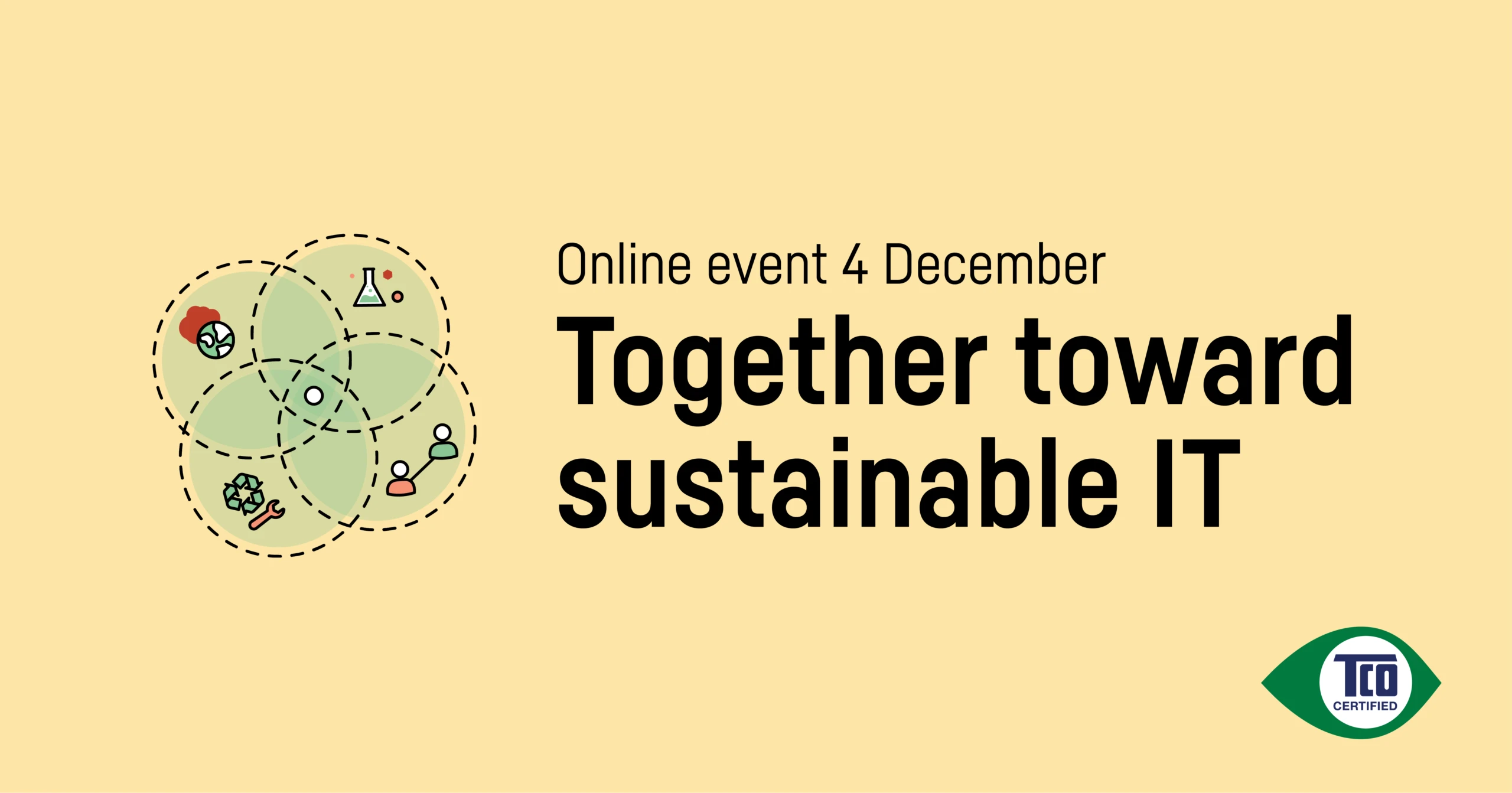The manufacturing of IT products is associated to a wide range of social and environmental risks. By using TCO Certified, generation 8 in procurement, you’re sending a clear message to industry to protect human rights in the supply chain, work against corruption and protect workers’ rights.
Minerals used in IT products have their origins in mining operations located in conflict affected and high-risk regions and are linked to humans rights violations such as child labor, labor abuses as well as environmental degradation. In addition, violations against human rights and labor laws occur in factories. Some examples are forced labor, extensive working hours and worker exposure to hazardous substances.
A complex supply chain
For several reasons, driving sustainability in the IT industry is difficult. IT products have a large number of complex supply chains. The computer or smartphone is assembled in the final assembly factory, but the network of subcontractors supplying components and raw materials covers many companies on several continents. Production is a step-by-step process: from mines and oil fields to smelters where raw materials are refined, to production of materials such as plastics, that are in turn supplied to component manufacturers. Finally, the components are assembled to the final product in one or several final assembly factories.
The brand owner, whose logo you see on the product, rarely owns the factories where the product is manufactured. Instead, subcontractors carry out the manufacturing. Which subcontractors that are used may vary over time. It is therefore vital to hold the brand owner accountable for what goes on in the supply chain — also for the steps in the process that they don’t own themselves.
Expertise and resources needed to drive sustainable development
What does this mean for the purchaser wanting to buy more sustainable products? Firstly, it is difficult to set relevant product criteria that really create sustainability benefits, and secondly, it is extremely difficult to verify that products and factories comply with those criteria. In order to do that, the supply chain must be mapped out, which may be difficult in itself, but you also need specialists in sustainability issues and IT products who test the products and audit the factories on site. A corrective action plan must be implemented and followed-up in all cases of factory non-conformities, to ensure that violations aren’t repeated and that progress can be measured.
TCO Certified, a tool that helps you make a difference
Since adding our social criteria in 2009, purchasing organizations have contributed to a more responsible IT product supply chain by including TCO Certified in procurement. TCO Certified, generation 8 allows us to take another large step forward together. Criteria are sharper, monitoring is increased in high risk factories and corrective action plans are followed up in an even more efficient way.
TCO Certified includes criteria requiring that the IT industry take responsibility for both social and environmental sustainability connected to their products and supply chains. Independent organizations verify that products and factories meet the set criteria. The process also includes following up that corrective actions are implemented in all cases of factory non-conformities.
If non-conformities aren’t corrected within a reasonable time, the certificate can be withdrawn. Since purchasers all over the world ask for TCO Certified when they purchase IT products, this may lead to that the brand owner misses out on business opportunities. That’s one of the reasons to why TCO Certified is an efficient tool for driving sustainable development.




